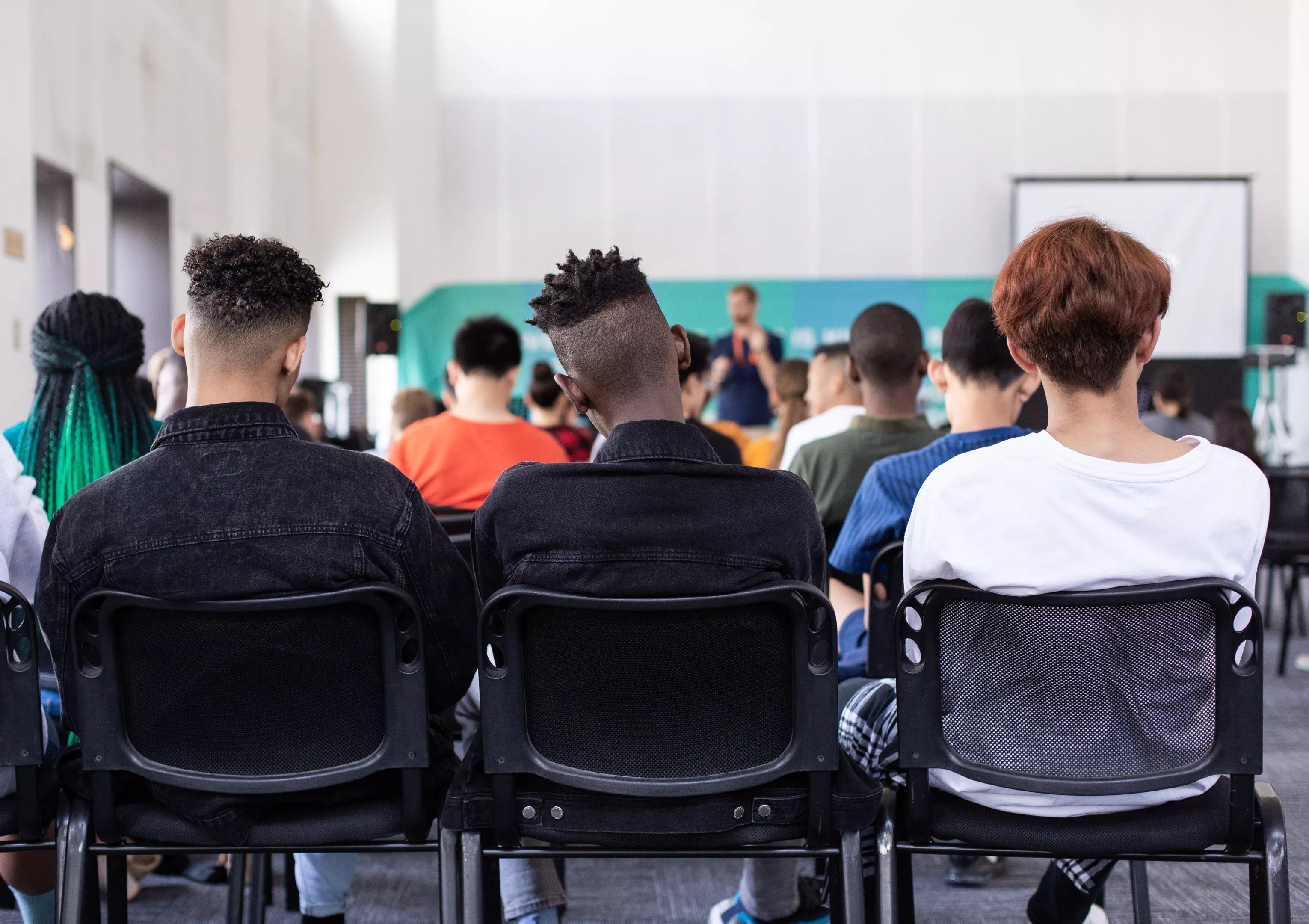

Audio By Carbonatix
For months, certain Texas Republican leaders have tried – and seriously struggled – to carry school voucher legislation past the finish line. Earlier this week, Gov. Greg Abbott announced that he would sweeten the deal for holdouts by expanding the special session agenda to include teacher raises and additional public school funding.
But critics of the privatized-ed push argue that no matter how you slice it, voucher programs would primarily help affluent white families and harm communities of color.
Passing vouchers would lead to more segregated schools, both racially and economically, according to an October press release from the Texas NAACP and Texas Legislative Black Caucus.
TLBC Chair Ron Reynolds, a Democratic state representative from Missouri City, told the Observer that most African Americans – as well as low-income white and Hispanic people – can’t afford private schools. That’s even with a voucher.
For example, under one proposal, participating families would receive $8,000 to send their kid to private school. But Reynolds said some private-school tuitions can cost as much as $20,000.
“Even if you give them an $8,000 subsidy, they can’t come up with the rest of the money,” he said. “So basically, it’s no good for them. It only subsidizes the rich and the well-off and the well-to-do.”
He also highlighted another key point: “Private schools, unlike public schools, don’t have to accept every student.”
The GOP-majority Texas Legislature in 2021 barred so-called critical race theory from public schools, even though districts have roundly denied teaching the college-level academic framework. And earlier this year, conservative lawmakers doubled down by banning diversity, equity and inclusion offices in higher education.
Public-ed proponents argue that the voucher system will worsen inequities by siphoning taxpayer money away from already chronically underfunded public schools. As another state representative put it in a post on X (formerly Twitter): It’s “welfare for the wealthy.”
These pictures were taken at Cornerstone Christian School, where tuition is $27,000.
Abbott’s voucher is only $8,000 – not enough for working families to get a “choice” but enough for rich families at Cornerstone to get a 30% discount.
Vouchers are welfare for the wealthy. pic.twitter.com/ydf91ZbGjm
— James Talarico (@jamestalarico) October 30, 2023
Reynolds explained that Black people weren’t allowed to attend Anglo universities until the late 1950s and early ’60s. Texas has an ugly history when it comes to race relations, he added, and now, vouchers could get added into the mix.
Private schools often aren’t diverse and can reject students at will.
“This voucher system, it really exacerbates the haves and the have-nots,” Reynolds said. “It gives the ‘haves’ a subsidy to subsidize their private school tuition that most of them can already afford, and the ‘have-nots’ are left at the neighborhood public schools with even less resources than they had to begin with. So this is bad for Texas.”
The modern voucher push can be traced to racist backlash following the 1954 U.S. Supreme Court ruling Brown v. Board of Education, which declared segregation in public schools unconstitutional. “There is simply no denying the historical connection between the birth of private school voucher policies and segregationist defiance to Brown,” a prominent teachers’ advocate wrote in a 2017 piece for Dissent magazine.
Since that landmark decision, “you’ve seen this voucher movement in Texas,” said Texas NAACP President Gary Bledsoe.
“Even though it’s imperfect, and we can always improve the public school system, there are at least some mechanisms for oversight and accountability.” – Paige Duggins-Clay, IDRA
Bledsoe told the Observer that aside from race, school vouchers would also discriminate against Texans in rural areas. Often, these counties don’t have private schools at all. Indeed, GOP representatives from rural parts of the state have fought against the passage of the vouchers legislation.
People motivated by hate support voucher programs because they would allow white children to move away from public schools with ethnic and racial minorities, Bledsoe said.
“You’ll have a mass exodus from the public schools, primarily of white students, and so you’re going to decrease diversity substantially,” he added.
Speaking with the Observer, Paige Duggins-Clay, chief legal analyst with the Intercultural Development Research Association, cited a recent report showing that a significantly higher number of white students attend private schools compared with their non-white peers.
Around 13% of the state’s public school population is Black, but in private schools Black students account for only 6% of enrollment, according to the report. And although more than half of the student body in public schools is Latino, this group makes up less than a quarter of kids in private schools.
Duggins-Clay said voucher programs effectively fund discrimination; she’s not aware of any meaningful civil rights protections in other states’ voucher laws. She added that private schools under Senate Bill 1 would be able to discriminate for reasons like religious identity and the amorphous category of “institutional values.”
The vast majority of private schools are parochial in nature, meaning they’re connected to a certain faith and can turn away pupils with differing religious views, she said. They can also refuse to admit LGBTQ+ students or to hire educators from that community.
To be sure, some private schools have excellent academic programs, Duggins-Clay said. But there’s a lack of reliable evidence showing that vouchers would boost academic outcomes. Rather, the opposite is true.
Studies indicate that students who benefit from vouchers don’t perform better than their public-ed peers, she said. Many have even returned to public schools, where they then get remediated for learning loss.
Private institutions also aren’t held to the same academic and fiscal standards as public schools, such as standardized testing or the accountability rating system, Duggins-Clay said.
“Even though it’s imperfect, and we can always improve the public school system, there are at least some mechanisms for oversight and accountability,” she continued. “None of that is present in private schools.”